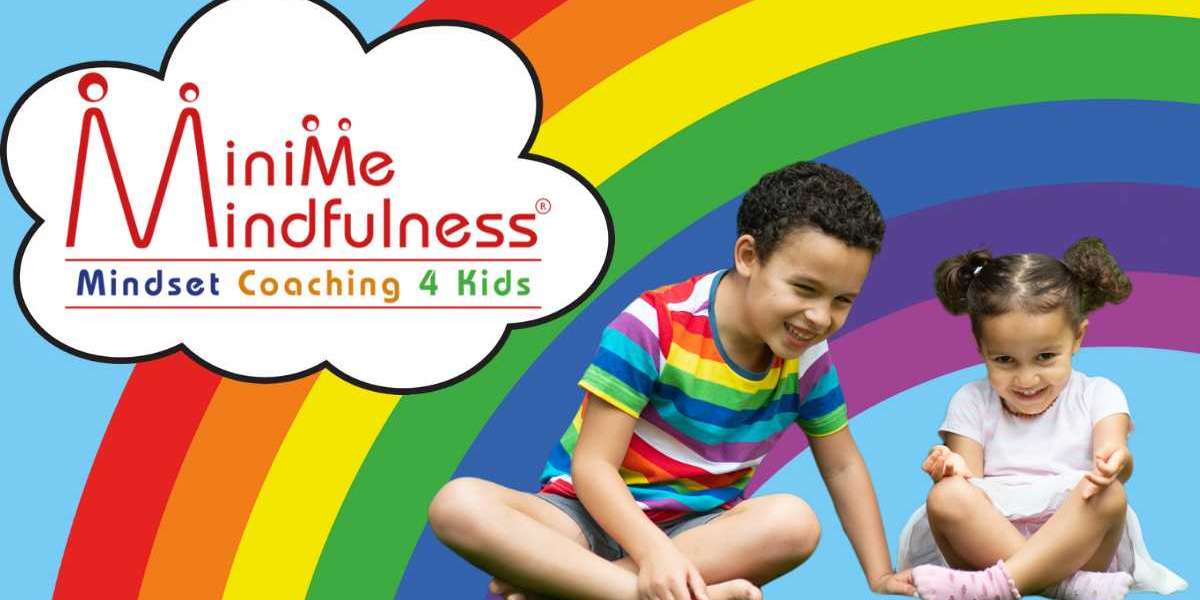In the fast-paced and ever evolving world we live in, the importance of cultivating mindfulness in children cannot be overstated. As the demands on young minds continue to grow, teaching children the art of mindfulness becomes a powerful tool for building resilience, developing emotional intelligence and overall well-being. In this post, I will be exploring why mindfulness is crucial for children's development and how incorporating mindful practices into their daily lives can set the foundation for healthier and more balanced life. Something that as adults we are constantly striving for. If only we had learnt some of these techniques as children.
Understanding Mindfulness
Mindfulness is the practice of paying attention to the present moment without judgment. It invloves being fully aware of thoughts, emotions and sensations whilst fostering a sense of acceptance and compassion towards yourself and others. Whilst this might sound complicated for children to learn, the basic principles of mindfulness can be introduced in age-appropriate ways, helping children to develop these life-changing skills early in life.
There are so many benefits to mindfulness that I am going to explain.
Enhances Emotional Regulation
One of the primary benefits of mindfulness, particularly for children, is the positive impact it has on emotional regulation. Through mindfulness practices such as deep breathing and guided imagery, children learn to identify and manage their emotions effectively. This skill is invaluable for navigating the challenges of growing up, fostering better relationships with peers and promoting a positive self-image. I'm sure we can all name several adults who would benefit from a better grasp of their emotions and how to recognise their triaggers and react differently. My in-laws would definitely benefit from this!
Improves Concentration and Focus
In a world filled with constant distractions, teaching children to be present and focused is a valuable asset and skill for life. Mindfulness exercises, such as simple meditation techniques or mindful breathing can help children to sharpen their concentration skills. As a result, they become better equipped to handle academic challenges, improve their learning outcomes and excel in various aspects of their life. When working with nursery aged children, I often find that teaching staff are convinced their children won't be able to sit and mdeitate or even just sit. I have found that when given the chance, they rise to this opportunity. Building up from very short 40 second meditations all the way up to 5 minute ones.
Builds Resilience
Life is full of ups and downs. No ones life is ever completely smooth or linear. Teaching children how to bounceback from a knock back is a crucial skill for life. Mindfulness fosters resilience by encouraging children to approach challenges with a calm and composed mindset. When faced with difficulties, mindful children are more likely to respond thoughtfully rather than react impulsively, paving their way for healthier coping mechanisms. As a former High School teacher, I have seen first-hand the number of children who say they can't do something before they have even attempted it. This giving up before trying is on the rise. Children are afraid to fail but failure is all about learning. I use the analogy of learning to walk as a small child how despite numerous stumbles they continued to try and didn't give up.
Cultivates Compassion and Empathy
Mindfulness emphasises non-judgmental awareness and compassion, fostering empathy towards ourselves and others. In a world where we constantly compare ourselves to others and often find ourselves lacking, or coming up short, this is such an important mindset to have. When children are taught, from a young age to be mindful of their own emotions and experiences, they are better equipped to understand the feelings of those around them. This not only strengthens their relationships but also contributes to the development of a more compassionate and understanding society.
Fosters Better Sleep
Adequate and quality sleep is crucial for a child's overall development amd well-being. Mindfulness practices, such as relaxation techniques mindful bedtime routines, can significantly improve sleep patterns. By calming the mind and promoting a sense of inner peace, mindfulness helps children transition into a restful state, contributing to a better quality sleep.
In a world that often moves at a relentless pace, teaching children the art of mindfulness is an investment in their long-term well-being. By incorporating age-appropriate mindfulness practices into their daily lives and routines, we are empowering our children to with essential skills for emotional regulation, concentration, resilience and empathy. As we nurture mindfulness in children, we lay the foundation for a future generation capable of navigating life's challenges with grace, compassion and a deep understanding of themselves and others.
If you're a parent of a child aged 3+ then why not join MiniMe Mindfulness' Parent Community on Facebook for free? It's full of tip, hints and support.








KP VA Services 2 yrs
Such a beautiful post! Mindfulness is amazing. I have benefited from it and children will too xx